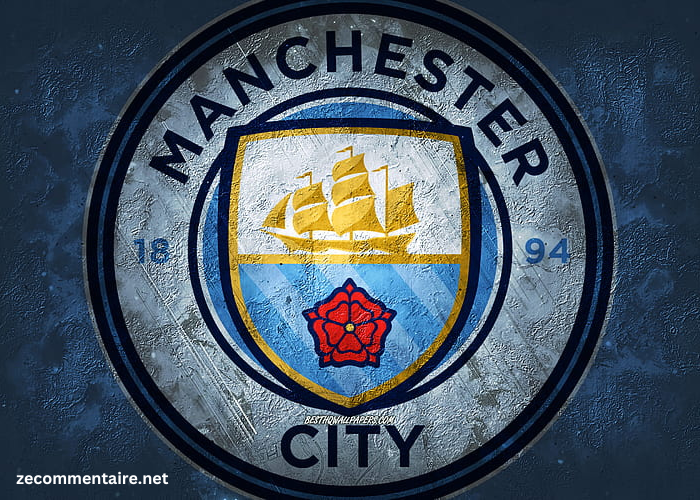Manchester City Football Club, often referred to simply as Manchester City or City, stands as a prominent figure in modern football. Founded in 1880 and originally known as St. Mark’s (West Gorton), the club has undergone a remarkable transformation, emerging as one of the most successful and popular teams in the English Premier League (EPL). This article delves into the history, achievements, and current status of Manchester City, offering a detailed exploration of their rise to prominence and future prospects.
The Historical Background of Manchester City
Early Beginnings and Formation
Manchester City was established as St. Mark’s (West Gorton) in 1880, evolving into Ardwick AFC in 1887 before becoming Manchester City FC in 1894. The club initially competed in regional leagues, gradually making its mark on the English football scene. The early years were characterized by fluctuating success and financial instability, with the club struggling to establish itself in the competitive landscape of English football.
Rise to Prominence
The mid-20th century marked a significant turning point for Manchester City. The club enjoyed notable success during the 1960s and 1970s, securing several domestic titles and establishing itself as a force to be reckoned with. The 1968 league title, in particular, was a landmark achievement, signaling the beginning of a new era of success for City.
However, the subsequent decades were marked by periods of decline and financial difficulty. The club experienced relegation to lower divisions and struggled to regain its former glory. It was during this challenging period that Manchester City began to lay the groundwork for a future resurgence.
The Transformation Era: 2008 Onwards
The Sheikh Mansour Era
The arrival of Sheikh Mansour bin Zayed Al Nahyan in 2008 as the owner of Manchester City marked the beginning of a transformative era for the club. The acquisition by the Abu Dhabi United Group brought substantial financial investment, enabling City to pursue top-tier talent and compete at the highest level of European football.
The influx of resources led to significant changes in the club’s infrastructure, including the expansion of the Etihad Stadium and the development of the City Football Academy. These investments laid the foundation for City’s rise as a dominant force in English and European football.
Success Under Roberto Mancini and Manuel Pellegrini
The early years of Sheikh Mansour’s ownership saw the appointment of Roberto Mancini as the club’s manager. Mancini’s tenure was marked by considerable success, including winning the Premier League title in the 2011-2012 season, which ended a 44-year wait for the league championship.
Following Mancini, Manuel Pellegrini took over as manager, guiding City to further success. Under Pellegrini, Manchester City won the Premier League title again in the 2013-2014 season, along with securing the League Cup. Pellegrini’s tenure solidified City’s status as a dominant force in English football.
The Pep Guardiola Era: A New Chapter
Arrival and Immediate Impact
In 2016, Pep Guardiola was appointed as Manchester City’s manager, ushering in a new era of footballing excellence. Guardiola, known for his innovative tactics and emphasis on possession-based football, brought a fresh approach to City’s playstyle. His arrival was marked by a series of high-profile signings and a commitment to playing an attractive and effective brand of football.
Under Guardiola, Manchester City experienced a period of unprecedented success. The 2017-2018 season saw City achieve a record-breaking 100 points in the Premier League, setting a new standard for domestic football. This achievement was accompanied by the League Cup victory, further cementing City’s dominance.
Continued Success and Achievements
The 2018-2019 season was another landmark year for Manchester City, as they achieved an unprecedented domestic treble, winning the Premier League, FA Cup, and League Cup. Guardiola’s tactical acumen and the club’s financial investment created a team that was both formidable and entertaining.
In addition to domestic success, Manchester City has made significant strides in European competitions. The club reached the UEFA Champions League final for the first time in 2021, demonstrating its growing prominence on the continental stage. Although they fell short in the final, City’s consistent performances in Europe highlighted their status as one of the leading clubs in global football.
Key Players and Iconic Moments
Influential Players
Throughout its history, Manchester City has been home to numerous influential players who have left a lasting impact on the club. Legends such as Sergio Agüero, known for his prolific goal-scoring, and David Silva, renowned for his creativity and vision, have played pivotal roles in City’s successes.
In recent years, players like Kevin De Bruyne and Raheem Sterling have become central figures in City’s squad. De Bruyne’s exceptional passing and playmaking abilities, along with Sterling’s pace and finishing, have been instrumental in the club’s achievements under Guardiola.
Iconic Moments
Manchester City’s journey has been marked by several iconic moments that have shaped the club’s legacy. The dramatic Premier League title win in 2012, with Sergio Agüero’s last-minute goal securing the championship, remains one of the most memorable moments in English football history.
Another significant moment came in 2018, when City’s record-breaking season demonstrated their dominance and set new benchmarks for excellence. These moments, among others, have become etched in the club’s history and are celebrated by fans around the world.
Community Engagement and Global Reach
Community Initiatives
Manchester City is not only known for its on-field success but also for its commitment to community engagement. The club’s initiatives, such as the City in the Community program, focus on supporting local communities through various social and educational projects.
These initiatives aim to make a positive impact on the lives of individuals and families, fostering a sense of connection and support within the community. Manchester City’s efforts to give back underscore its role as a socially responsible organization and contribute to its positive reputation.
Global Fan Base and Influence
The success and global appeal of Manchester City have resulted in a vast and passionate fan base around the world. The club’s international tours, partnerships, and media presence have expanded its reach beyond the borders of Manchester, making it a globally recognized brand.
City’s influence extends into various markets, including Asia, North America, and the Middle East. The club’s global fan base is a testament to its success and the widespread admiration for its style of play and achievements.
Challenges and Future Prospects
Current Challenges
Despite its success, Manchester City faces several challenges as it looks to maintain its position at the top of English and European football. The club must navigate competitive pressures from rival teams, manage financial fair play regulations, and continuously innovate to stay ahead.
Additionally, the evolving landscape of football, with increasing emphasis on sustainability and social responsibility, presents new challenges for the club. Addressing these challenges while striving for continued success will be crucial for Manchester City’s future.
Future Prospects
Looking ahead, Manchester City aims to build on its achievements and continue its pursuit of excellence. The club’s commitment to investing in talent, infrastructure, and innovative strategies positions it well for future success.
As City continues to compete at the highest levels, its focus on maintaining a strong squad, nurturing young talent, and adapting to emerging trends will be key to sustaining its dominance in English and European football.
Conclusion
Manchester City Football Club’s journey from its early beginnings to its current status as a global football powerhouse is a story of transformation and success. Through significant investments, strategic leadership, and a commitment to excellence, City has established itself as one of the most influential clubs in modern football.
With a rich history, a talented squad, and a global fan base, Manchester City is well-positioned to continue its pursuit of success both domestically and internationally. As the club navigates the challenges and opportunities ahead, its legacy as a leading force in football is set to endure and evolve.




